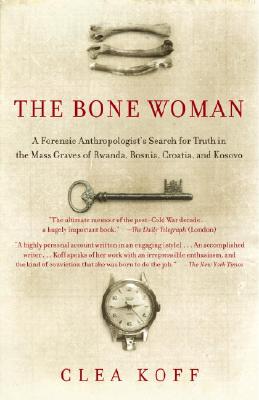
Koff, Clea
product information
description
first acts since World War II to be legally defined as genocide. Two years later, Clea Koff, a twenty-three-year-old forensic anthropologist, left the safe confines of a lab in Berkeley, California, to serve as one of sixteen scientists chosen by the United Nations to unearth the physical evidence of the Rwandan genocide. Over the next four years, Koff's grueling investigations took her across geography synonymous with some of the worst crimes of the twentieth century. The Bone Woman is Koff's unflinching, riveting account of her seven UN missions to Bosnia, Croatia, Kosovo, and Rwanda, as she shares what she saw, how it affected her, who was prosecuted based on evidence she found, and what she learned about the world. Yet even as she recounts the hellish nature of her work and the heartbreak of the survivors, she imbues her story with purpose, humanity, and a sense of justice. A tale of science in service of human rights, The Bone Woman is, even more profoundly, a story of hope and enduring moral principles.
member goods
No member items were found under this heading.
listens & views

BLACK GROVE COMPILATION 1: CHOPPED ...
by BLACK GROVE COMPILATION 1: CHOPPED / VARIOUS
COMPACT DISCout of stock
$10.99
Return Policy
All sales are final
Shipping
No special shipping considerations available.
Shipping fees determined at checkout.






